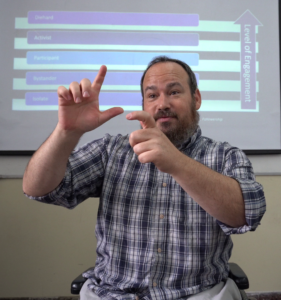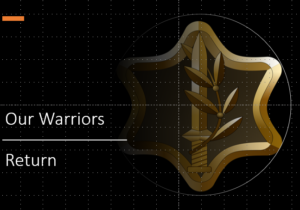I recently uploaded a podcast episode with Max and one of the main topics we discussed with the role of trust in teams, organizations, and with clients.
We also got to talk about the nature of exemplary followership and how it can impact a person’s role on a team and how leadership sees a person.
As a Customer Success Manager Max has developed a unique perspective about what it takes to build strong relationships and trust, not only with clients but also with his leaders and team members. During the discussion he explained how communication, understanding, and empathy can make all the difference in establishing oneself as an expert and creating long-lasting connections.
From High School Leadership to Customer Success Expert
Max’s journey to becoming a customer success manager began with his experiences in high school. He was involved in a variety of extracurricular activities, including starting a Recycling Club and serving on a committee for Leadership in Jewish Communities. These experiences taught him critical thinking and thinking outside the box, skills that would serve him well in his future career.
After university, Max began working in entry-level roles in sales and customer support for startups. He quickly gained a reputation as a problem-solver and exemplary follower – which has been one of the key elements throughout his career. Max has been passionate about becoming an expert in customer success and support, but he was also passionate about helping his team members grow and develop.
Trust and Communication in Customer Success
And it is clear that this attitude is one that also applies to his experience as a Customer Success Manager. Max argued that his primary role is to build relationships and trust with clients. And he believes that communication is key to establishing these connections. But he also suggested that having the clients best interest at heart, and taking independent action and engaging critical thinking were essential to demonstrate that clients can trust.
From a leadership perspective, he also pointed out how important it is to understand the personality and communication style of each client. By doing this, Max is able to provide value and act in a humane manner, creating a bond that leads to long-term retention and potential upselling.
Max emphasized the importance of finding solutions that work within the boundaries of a company’s offerings, but also tailoring them to the specific needs of the client. This requires a deep understanding of the client’s goals, pain points, and overall business strategy – which Max suggests comes with a followership attitude
Building Effective Teams through Trust
Trust is the foundation for effective teamwork, and Max believes that this is important at all levels of a company. When we spoke about trust I cited the Trust Pyramid by Patrick Lencioni, which outlines how trust leads to effective conflict, commitment, and accountability. If trust is broken or fragile, it becomes difficult to hold people accountable and find mutual understanding, leading to poor results.
Max’s experiences working for different startups have taught him the importance of building effective teams through trust. Whether you’re working in an entry-level role or leading a company, it’s important to find people who share your values and are committed to working towards a common goal.
Just as importantly, trust in not only based on the mutual purpose but also on recognizing the person and their situation. His description of broken trust, and the way C-Level leadership broke trust regarding his prioritizing family, speaks to how important it is to understand how key followers can be impacted by leaders that don’t understand followership in-depth.
Conclusion
Max’s experiences working in customer success (and DMing and playing D&D) have taught him the importance of building relationships and trust. Whether you’re working in an entry-level role or leading a company, it’s important to be empathetic, communicate effectively, and tailor your solutions to the specific needs of the client.
And they have shown how exemplary followers need that foundation of trust to be most effective in their jobs.
By building trust at all levels of a company, you can create a culture of mutual understanding, effective conflict, and accountability.



